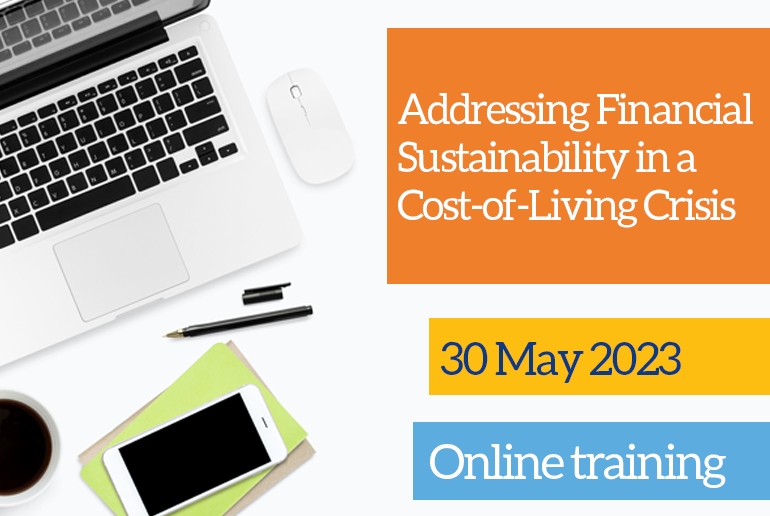This online training session is designed for charity leaders including chief executives, trustees, finance professionals, strategists and those involved in income generation including fundraising. It will be particularly useful for charities and nonprofits who need to improve their financial sustainability by understanding better where costs are allocated and how to implement strategies to meet those costs and deliver benefit for stakeholders. The session will be interactive and discursive. Be prepared to join discussions about how the principles touch on real issues in your charity.
Speakers
-
Dan Fletcher
Dan Fletcher has a broad background in the charity sector but started out as a food scientist for Nestlé UK. He then moved into the charity world in 1996 in a communications and fundraising role for an International Christian development charity.
He held leadership roles in charity fundraising and marketing for various health and social welfare charities, including two hospices during the 2000s after which he set up his own management consultancy with clients including NCVO and The King’s Fund. Since 2014, at Moore Kingston Smith, Dan has worked across all nonprofit sectors, advising clients on charity strategy, governance, capital campaigns, delivering fundraising programmes, and reviewing fundraising processes.
Over the years, he has used his broad experience in voluntary roles with the Chartered Institute of Fundraising, including chair and treasurer of different committees. He currently sits on the Chartered Institute’s Finance and Resources Board subcommittee and is a member of the Linking Lives UK Advisory Group. Until recently he was treasurer of Hertfordshire Natural History Society and co-chair of
Sustainable St Albans. Dan holds a Diploma in Fundraising from the Chartered Institute. -
Marcus Lees-Millais
Marcus is an ICAEW chartered accountant having qualified with PwC in the Channel Islands. Marcus works for the Nonprofit Advisory team providing a range of services from finance function reviews and cost recovery work to financial modelling and finance training. He has worked closely with multiple support line charities in the past, having started his charity journey running and volunteering for Durham University Nightline while still studying for his degree.
He spent two years with Cass CCE (now Bayes), before moving to Moore Kingston Smith, undertaking business model and cost recovery reviews as well as other financial consultancy services on numerous different clients. Some of his recent clients include Age UK, the African Academy of Science, Girl Effect, Animal Free Research UK and Dementia UK.
Marcus holds a BA (Hons) in Archaeology from Durham University and in his spare time is a co-opted governor of a primary school in Brentford.
Programme
| 10:00 | Course Introduction |
| 10:05 |
Section 1 – Knowing your costs (acknowledge the gap) and cost recovery (measure the gap) We will consider how charity business models look to allocate and apportion costs to arrive at a transparent and fair overhead level. Recharging is critical here and we will look at why this is the case. Then we will touch on how examining your future income flows allow you to then measure the cost recovery gap and your charity’s structural solvency or lack of it. |
| 11:00 | Break |
| 11:15 |
Section 2 – Financial sustainability of programmes and services (fund the gap) Once you know the size of your gap, we will look at how to fund / close that gap. Signing-off any subsidy is the single easiest way to help do this, assuming reserves allow this. We will look at other opportunities to close the gap if you don’t. Being able to talk transparently and factually about your funding gap is important both internally and externally. It is crucial to closing that gap. |
| 12:15 | Break |
| 12:30 |
Section 3 – What about Impact? 2x2 grid of Impact and Financial Sustainability We can’t talk about the money side of programmes without touching on the impact they create. When making decisions about investment or divestment of your charitable activities, you can't base the decision solely on the financials. While we won’t cover this in depth, we will outline a helpful decision-making tool to understand your mix of services and programmes, and how the social value they create relates to their financial sustainability. |
| 12:45 | Conclusions and Q&A session |
| 13:00 | End |
Prices
(prices exc VAT)
Charity Finance subscriber - £119
Standard charity rate - £159
Corporate Charity Finance subscriber - £300
Corporate delegate - £400
For group bookings email [email protected]













